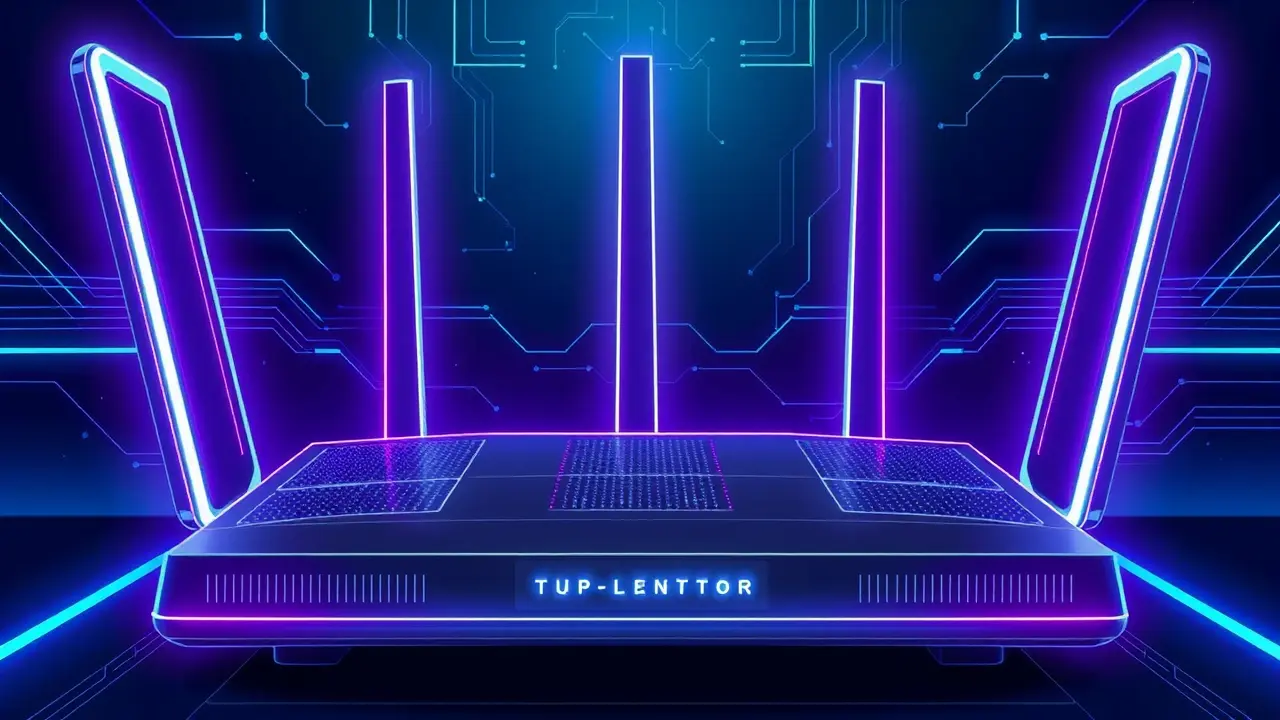
CryptoexchangesRegulatory Actions
Federal Agencies May Ban Popular TP-Link Wifi Routers.
MI
Michael Ross
3 weeks ago7 min read1 comments
In a move that echoes the cautious foresight of science fiction's greatest ethicists, federal agencies are now weighing a potentially seismic ban on popular TP-Link Wi-Fi routers, casting a long shadow over the very fabric of our connected lives and forcing a critical examination of where we draw the line between innovation and security. This isn't merely a bureaucratic squabble over technical specifications; it's a foundational policy debate that Isaac Asimov himself would have relished, pitting the relentless drive for technological convenience against the immutable laws of risk management.The scrutiny centers on alleged security vulnerabilities within TP-Link's firmware—the fundamental software that governs these ubiquitous household gateways to the internet. Imagine a front door, not just unlocked, but with a hidden mechanism known to malicious actors, a digital Trojan horse sitting innocently in millions of living rooms.The implications are staggering, creating a vast, distributed network of potential entry points for everything from simple data theft to sophisticated botnets capable of disrupting critical infrastructure. This situation is a textbook case of the 'Frankenstein complex' Asimov so often explored, where our creations, built for utility, develop unforeseen perils that we are ill-equipped to control.Federal intervention, likely spearheaded by bodies like the FCC and CISA, represents a regulatory impulse to establish guardrails before a catastrophe occurs, a proactive measure in an era where reactive policies are often too little, too late. Yet, the counter-argument, championed by industry advocates and libertarian technologists, warns of stifling innovation and setting a dangerous precedent for government overreach into consumer technology.They argue that the market, through consumer choice and competitive pressure, should be the ultimate arbiter of security standards. However, this perspective dangerously underestimates the average user's technical literacy; can we truly expect every family to conduct independent security audits of their router's code? The TP-Link case is a microcosm of the broader AI and IoT governance dilemma.As we rush toward a world of smart cities and autonomous systems, the security of a single router is no longer a personal issue but a collective one. A compromised device can become a pawn in a larger geopolitical cyber-conflict, a node in an attack on a power grid or a financial network.The debate forces us to ask: at what point does a consumer product's vulnerability become a national security threat? Historical precedents are scarce, but we can look to the early days of the automobile, where public outrage over safety, not market forces, eventually led to mandatory seatbelts and airbags. Similarly, the current scrutiny of TP-Link could be the catalyst for a new era of mandatory, auditable security standards for all connected devices.The potential consequences of a ban are multifaceted. For consumers, it could mean the sudden obsolescence of a trusted device, a financial loss, and a confusing migration process.For TP-Link, it could spell reputational ruin and devastating financial losses, a stark warning to the entire industry. For the government, it is a test of its authority and capability to regulate a domain that evolves at light speed compared to the pace of legislation.Expert commentary is divided. Some cybersecurity professionals applaud the tough stance, arguing that the industry has had ample time to self-regulate and has consistently prioritized features over foundational security.Others caution that a ban is a blunt instrument, potentially creating a false sense of security while punishing a single manufacturer for what is a systemic, industry-wide problem. The path forward requires a nuanced, collaborative approach—perhaps a grace period for manufacturers to remediate flaws, coupled with a transparent public scoring system for device security, empowering consumers with knowledge. The story of the TP-Link router is more than a tech news blip; it is a pivotal moment in our relationship with technology, a real-world test of the Three Laws of Robotics applied to our digital ecosystem, forcing us to build a future that is not only smart but also inherently safe and resilient.
#TP-Link
#wifi routers
#federal ban
#security scrutiny
#regulatory action
#lead focus news
Stay Informed. Act Smarter.
Get weekly highlights, major headlines, and expert insights — then put your knowledge to work in our live prediction markets.
Related News
Comments
Loading comments...
© 2025 Outpoll Service LTD. All rights reserved.